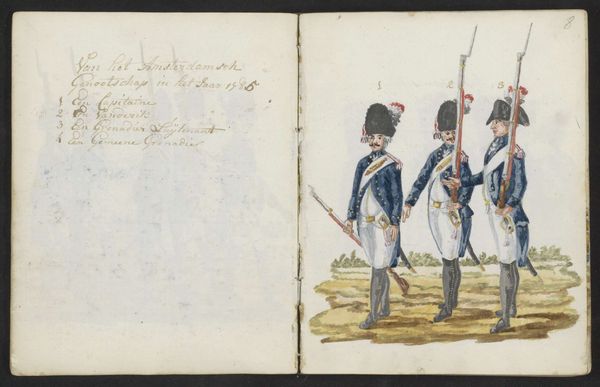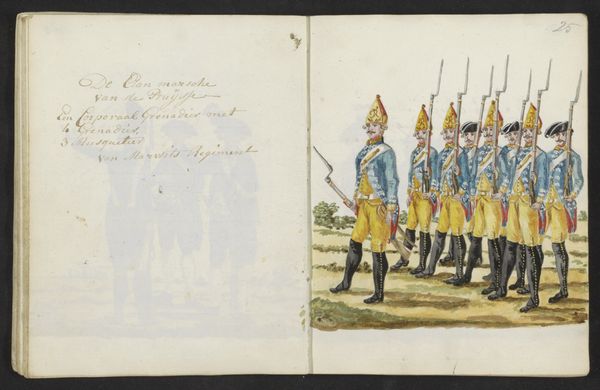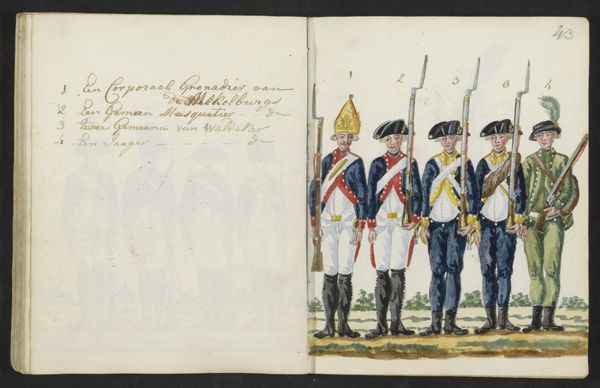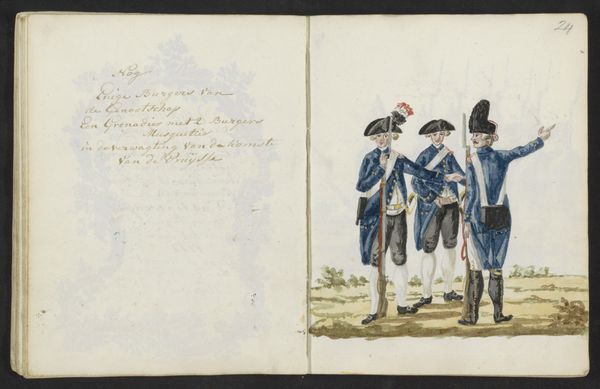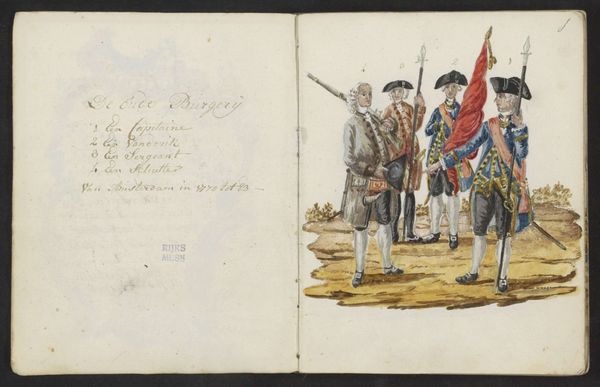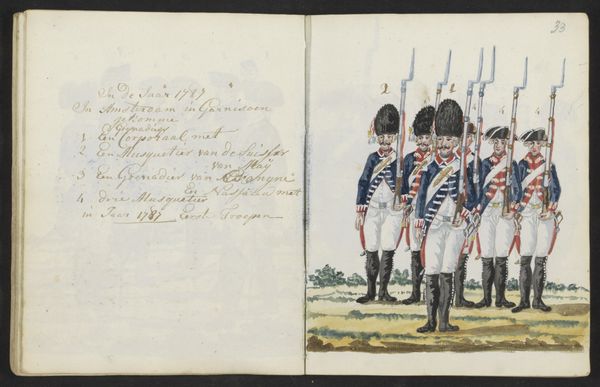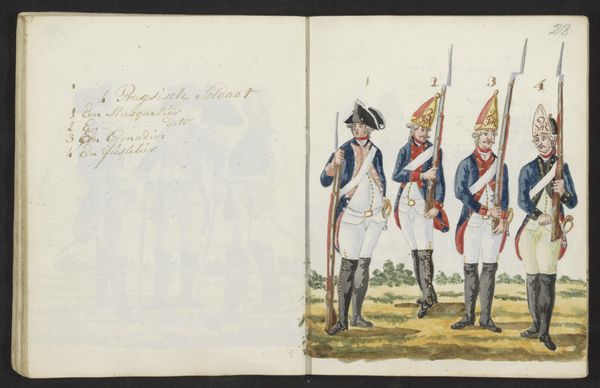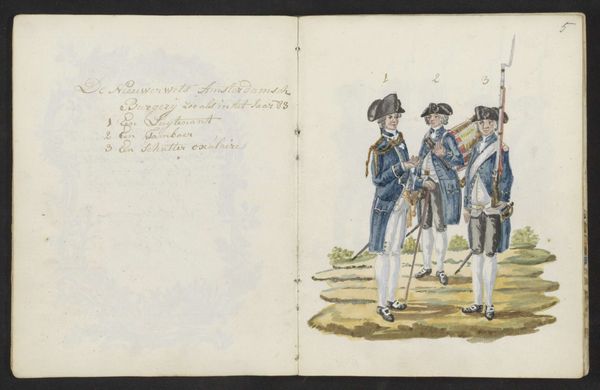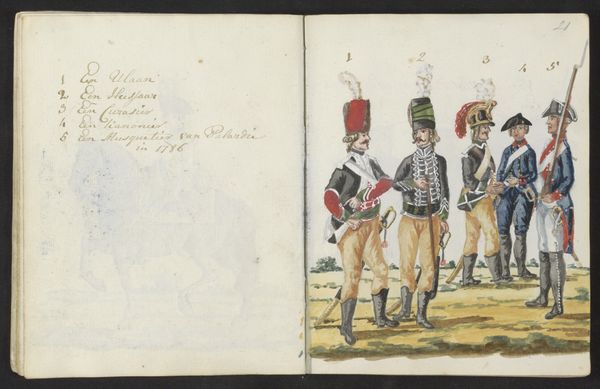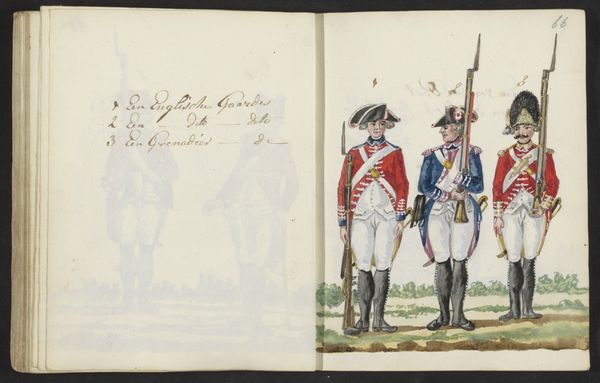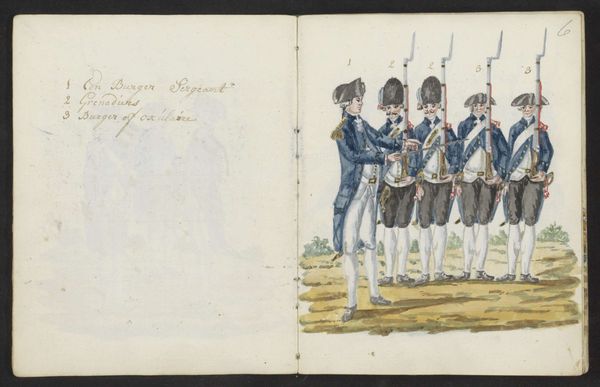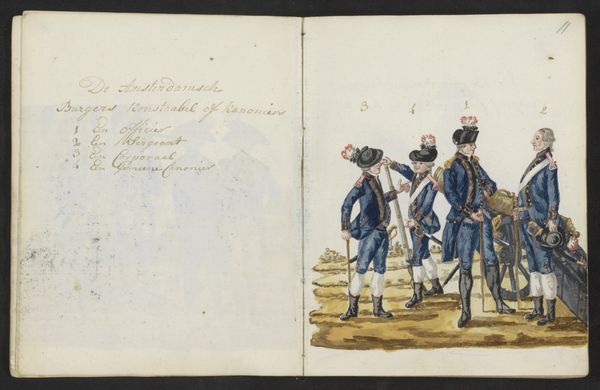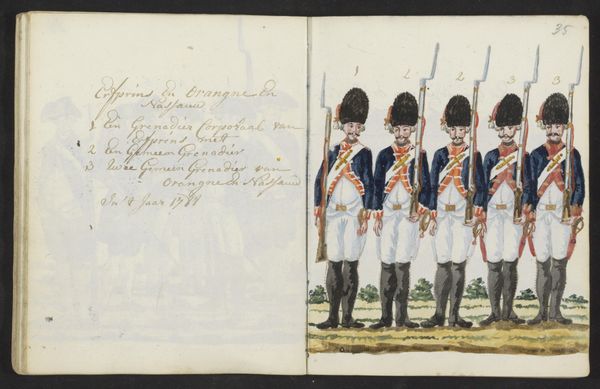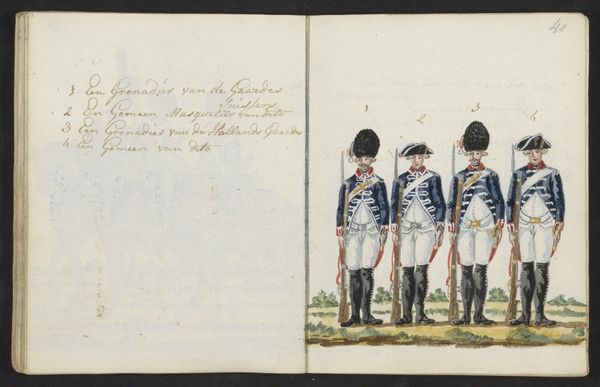
drawing, paper, watercolor
#
portrait
#
drawing
#
paper
#
watercolor
#
coloured pencil
#
watercolour illustration
#
history-painting
#
academic-art
#
miniature
Dimensions: height 197 mm, width 310 mm
Copyright: Rijks Museum: Open Domain
Editor: Here we have “Uniforms of the Amsterdam ‘exercitiegenootschap’ in 1783-1787” by S.G. Casten, created around 1795. It's a watercolor and ink drawing on paper depicting uniformed men. The neat rows of soldiers almost look like paper dolls, yet there's a stiffness that hints at something more serious than mere decoration. How do you interpret this work? Curator: This piece offers a fascinating glimpse into the social and political landscape of the Netherlands in the late 18th century. These "exercitiegenootschappen" were essentially citizen militias, formed during a period of political upheaval and Enlightenment ideals. Look at the uniformity, but also ask yourself: what power structures are being reinforced, and potentially challenged, by these citizen soldiers? What does it say about who was allowed to participate, and who was excluded? Editor: That's an interesting perspective. So, it’s more than just a record of uniforms? Curator: Exactly. These militias represented a rising middle class seeking greater political participation. The act of creating these uniforms and parading together was a visual assertion of their collective identity and their demands for reform. The uniforms themselves, while seemingly standardized, may also have been coded with subtle distinctions of rank or affiliation within the group. Consider who had access to commissioning such detailed depictions, like this watercolor. Whose story is being centered, and whose is being erased? Editor: So, this image could also hint at early democratic movements? Curator: Precisely! By studying seemingly straightforward images like this, and digging into the context, we can uncover a rich tapestry of social, political, and economic tensions. It’s not just about the art itself, but what it reflects about the world in which it was created and the people who shaped it. Editor: This gives me so much to consider and a new way to look at historical artwork!
Comments
No comments
Be the first to comment and join the conversation on the ultimate creative platform.
